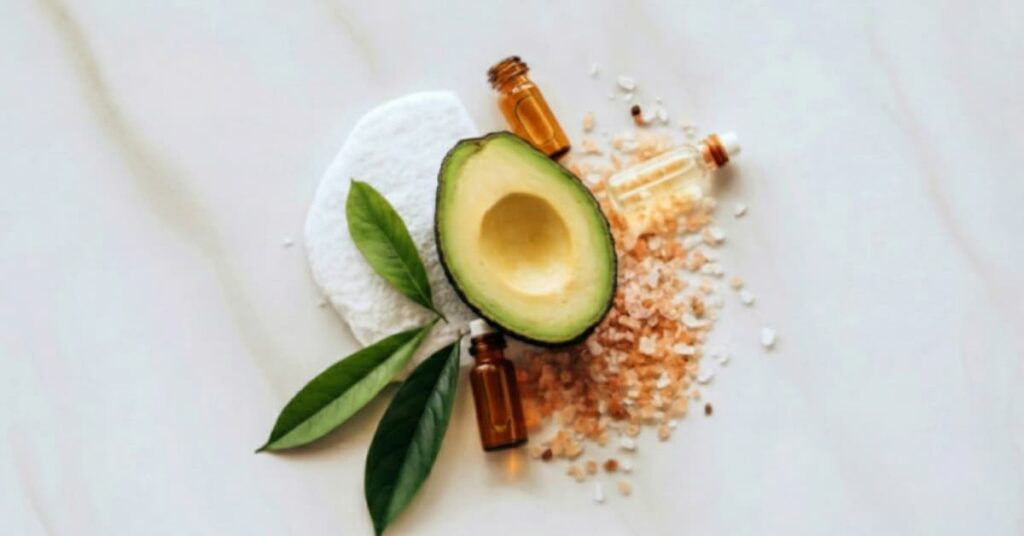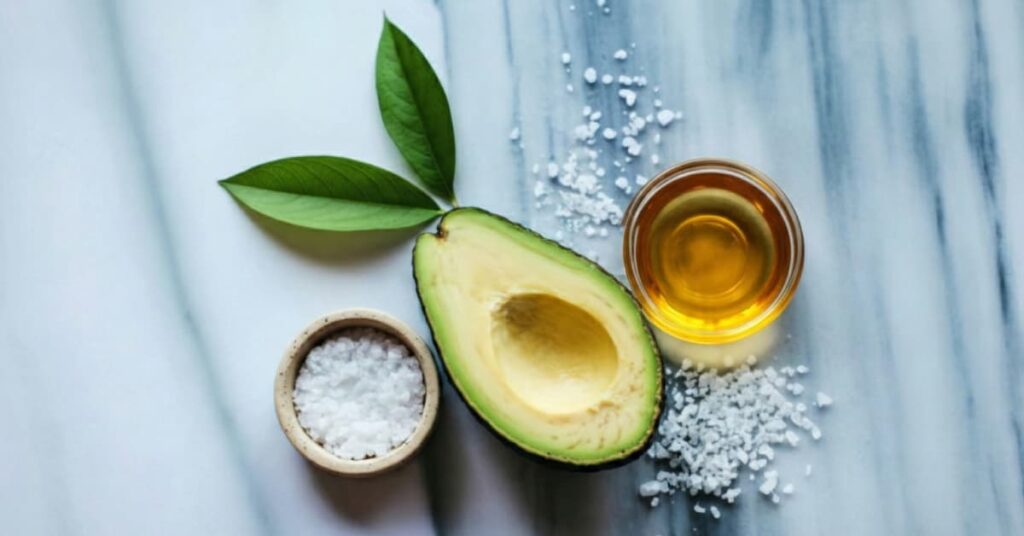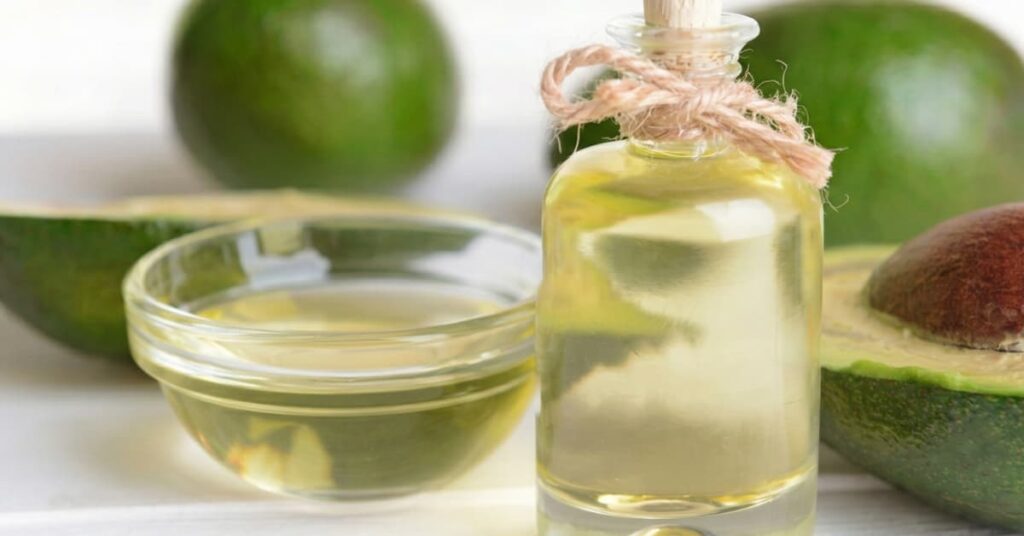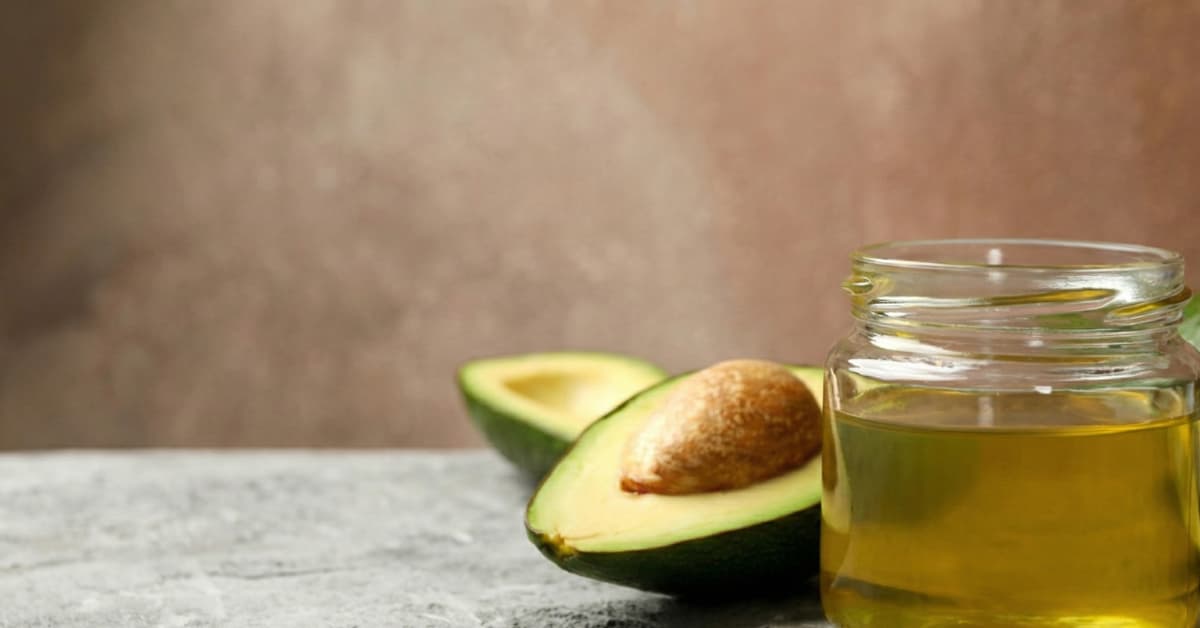Table of Contents
Introduction
Avocado oil has rapidly evolved from a niche health product to a staple in modern kitchens and beauty routines worldwide. Unlike most plant-based oils that are extracted from seeds or nuts, avocado oil is unique: it is pressed directly from the fleshy pulp of the avocado fruit—the same creamy green goodness you enjoy on toast.
Often described as the “cousin” of olive oil, it shares many of the same heart-healthy characteristics, including a high oleic acid and antioxidant content. However, it boasts a distinct advantage that sets it apart in the culinary world: an incredibly high smoke point. While other healthy oils burn and turn bitter at high temperatures, refined avocado oil remains stable up to 520°F (271°C), making it one of the safest and most versatile choices for frying, searing, and baking.
But its benefits extend far beyond the frying pan. Packed with Vitamin E, lutein, and essential fatty acids, avocado oil is a powerful “nutrient booster” that enhances the body’s absorption of other vitamins. Whether drizzled over a salad to unlock its nutrients, used to sear a perfect steak, or applied to dry skin for deep hydration, avocado oil is a multi-purpose powerhouse that bridges the gap between culinary performance and holistic wellness.

Avocado Oil
Avocado oil is mouthwatering, nutritional, and easy to use. It’s very rich in oleic acid, carotenoids, polyunsaturated fats, and additional antioxidant-rich nutrients related to improved heart, skin, and eye health.
Avocado oil is the natural oil squeezed from the pulp of an avocado. About 60% of avocado oil consists of heart-healthy oleic acid, a monounsaturated omega-9 fatty acid.
This fatty acid is also the primary component of olive oil and is partly responsible for its health benefits. Besides, around 12% of avocado oil is saturated fat, and about 13% is polyunsaturated fat.

Is avocado oil a seed oil
No, it is not a seed oil. It is a fruit oil, identical to olive oil. It is extracted from the fleshy pulp of the avocado (the part we eat), not from the large pit (seed) in the center. Here is the analysis of why this distinction matters, particularly in health and nutrition discussions:
- Source: True “seed oils” (for example, canola, corn, sunflower, and soybean oil) are extracted from the seeds of a plant. Avocado oil is pressed from the fruit flesh.
- Extraction Method: Because avocado flesh is naturally fatty and soft, the oil can be extracted by simple cold pressing or mechanical separation (centrifugation). In contrast, many seed oils require high heat, extensive processing, and chemical solvents (such as hexane) to extract oil from hard seeds.
- Fat Profile: Avocado oil is primarily composed of monounsaturated fats (specifically oleic acid), that is the same heart-healthy fat found in olive oil. Seed oils are typically high in polyunsaturated fats (Omega-6).

Avocado Oil Benefits
1. Joint & Arthritis Relief (ASU)
Avocado oil is one of the few food sources that includes a specific fraction of fats named Avocado Soybean Unsaponifiables (ASU).
ASUs have been clinically shown to block specific proteins (inflammatory cytokines) that cause tissue destruction and bone loss. Regular consumption may help lower stiffness and pain associated with osteoarthritis (wear-and-tear arthritis), potentially lessening the need for anti-inflammatory medicine.
2. It is Safe for High Heat (Doesn’t Burn Easily)
Most healthy oils (for example, extra virgin olive oil) burn and turn toxic if you get the pan too hot. Avocado oil can handle intense heat (up to 520°F). It means you can roast a steak or stir-fry vegetables without creating toxic smoke or chemicals.
3. It Doesn’t Change the Taste of Your Food
This oil is flavorless. You can use it to bake cakes, make mayonnaise, or fry eggs, and the food will taste exactly as it should—not like avocados.
4. The “Nutrient Taxi” Effect
It is a superpower of avocado oil. Many vitamins (like Vitamin A from carrots or K from spinach) cannot enter the blood on their own; they need fat to carry them. Adding avocado oil to the salad helps the body absorb up to 17 times more nutrients than eating the salad plain.
5. It Lowers “Bad” Cholesterol
It is rich in oleic acid (the same beneficial fat found in olive oil). This fat acts like a broom in the arteries, sweeping away the “bad” LDL cholesterol while keeping the “good” HDL cholesterol.
6. It Acts as a Natural Joint Painkiller
Avocado oil includes special combinations called ASUs. These block the chemicals in the body that induce inflammation. Regular usage can help lower stiffness and pain in the knees and hips (osteoarthritis).
7. It Protects Your Eyes
It includes lutein, a nutrient that acts like “internal sunglasses.” It protects the eyes from age-related damage and cataracts.
8. It Helps Fight Gum Disease
The anti-inflammatory ability of this oil works on the mouth, too. It can block a specific protein that kills bone and tissue around the teeth, thereby preventing gum bleeding and disease.
9. It Supports Your Liver
The liver is the body’s filter. Healthy fats in avocado oil support the liver in protecting it from toxins and may help it repair itself from damage.
10. It Helps With Weight Management
Because it is a thick, healthy fat, it digests slowly. It signals the brain that you are full for longer, helping you avoid snacking on junk food throughout the day.
11. It Is Gentle on Digestion
If butter or heavy animal fats give you heartburn or bloating, avocado oil is a great alternative. It helps heal and nourish the gut lining and is very easy to digest.
12. It Penetrates Deeper than Other Oils
Most oils (like coconut) sit on top of your skin. Avocado oil is unique because it can soak through the top layer and moisturize the skin deep down. It makes it excellent for dehydrated skin.
13. It Heals Wounds Faster
Studies demonstrate that the essential fatty acids in the oil can speed healing of minor cuts and scrapes by helping new skin cells form more quickly.
14. It Calms Eczema and Psoriasis
Because it not only moisturizes but also reduces inflammation, it stops the “itch-scratch” cycle. It soothes red, flaky, and irritated skin better than many chemical lotions.
15. It Detangles and Tames Frizzy Hair
It is lighter than castor oil but richer than coconut oil. A tiny amount on damp hair acts as a natural “leave-in conditioner,” making hair easy to comb and less likely to break.
16. It Strengthens Nails and Cuticles
If your nails are brittle or your cuticles are peeling, rubbing a drop of avocado oil on them every night will make them more flexible and less likely to snap.

Avocado Oil vs. Olive Oil
It is often challenging to choose between these two because they are “cousins” in the world of nutrition. Both are fruit oils (not seed oils), both are heart-healthy, and both are superior to vegetable oils like canola or corn. Nevertheless, they differ in two significant ways: Heat Tolerance and Flavor. Here is the direct comparison to help you decide which one to use.
1. The Cooking Showdown (Smoke Point)
It is the most practical difference.
- Avocado Oil (Refined): Has a massive heat tolerance of 520°F (271°C). You can deep fry, sear a steak, or stir-fry at high heat, and it will not burn or release toxic smoke. It is the “heavy lifter” in the kitchen.
- Olive Oil (Extra Virgin): Has a lower smoke point of roughly 375°F (190°C). If you put it in a wok or a searing hot pan, it will smoke, lose its nutrients, and turn bitter.
Winner: Avocado Oil for cooking/heating; Olive Oil for salads/finishing.
2. Flavor Profile
- Avocado Oil: The refined version is flavorless and odorless. It tastes like nothing. It’s perfect for baking (as a butter substitute) or for making mayonnaise when you don’t want an “oily” taste.
- Olive Oil: Has a distinct peppery, grassy, or fruity flavor. It is meant to be tasted. It adds character to pasta, bread, and dressings.
Winner: Olive Oil for taste; Avocado Oil for neutrality.
3. Nutritional Content (The Micro-Nutrients)
Both are roughly 70% Oleic Acid (Monounsaturated Fat), so they are equal for general heart health. The difference is in the minor compounds.
- Olive Oil: The King of Polyphenols. It contains a compound called Oleocanthal, which is a potent anti-inflammatory that mimics ibuprofen. It typically has more Vitamin E than avocado oil.
- Avocado Oil: The King of Lutein. It contains a specific antioxidant known for protecting eye health. It also has that unique ability to block the “interleukin” proteins that cause arthritis pain.
Winner: Tie. (Olive oil for general inflammation, Avocado oil for eyes/joints).
4. For Skin & Beauty
- Avocado Oil: It is a “penetrating” oil. Because of its specific molecular structure, it sinks deep into the dermis. It is better for dry skin or dandruff because it moisturizes from the inside out.
- Olive Oil: It is a “barrier” oil. It sits slightly more on the surface. It is better for locking in moisture that is already there, but it can be a bit heavy/greasy for acne-prone skin.
Winner: Avocado Oil (It is less likely to clog pores and absorbs faster).
Avocado Oil for hair
Deep Moisturization: It hydrates the hair strand from the inside, making it more elastic and less likely to snap when you brush it.
Scalp Health (Dandruff Relief): Because it penetrates deeply, it moisturizes a dry, flaky scalp more effectively than heavy oils that sit on the surface and cause buildup.
Natural Detangler: It provides “slip,” making it easy to comb through knotted hair without breakage.
Heat Protection: While not a replacement for a heat protectant spray, its high smoke point (520°F) means it won’t “cook” your hair if you use it before blow-drying.
Biotin Boost: It contains Biotin (Vitamin B7), which is essential for the growth of healthier, thicker hair strands.
Refined Oil Avocado VS Unrefined Oil Avocado
The main difference between the two lies in how they are processed, which dictates how you should use them in the kitchen. Refined avocado oil has been filtered to discard impurities and pulp, resulting in a pale yellow, flavorless oil with an extremely high smoke point (520°F), making it the perfect “workhorse” for high-heat cooking like frying, searing steaks, or baking, where you want the health benefits without the taste or smoke.
Conversely, unrefined (extra virgin) avocado oil is cold-pressed to retain its natural emerald green color and distinct buttery, grassy flavor; because it keeps these delicate nutrients and solids, it has a lower smoke point (around 375°F) and is best used strictly for “cold” applications like salad dressings, dips, or as a skin moisturizer to maximize its nutrient absorption.
Conclusion
Avocado oil is the natural oil squeezed from the pulp of an avocado. About 60% of avocado oil consists of heart-healthy oleic acid, a monounsaturated omega-9 fatty acid.
This fatty acid is also the primary component of olive oil and is partly responsible for its health benefits. Besides, around 12% of avocado oil is saturated fat, and about 13% is polyunsaturated fat.




